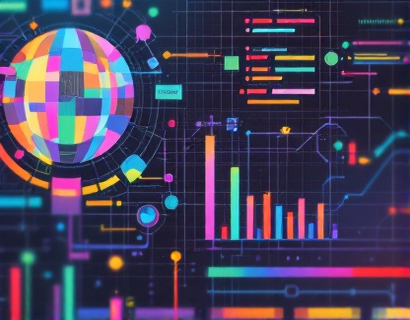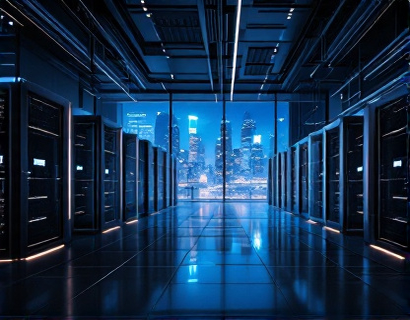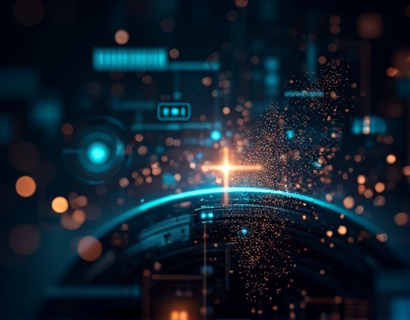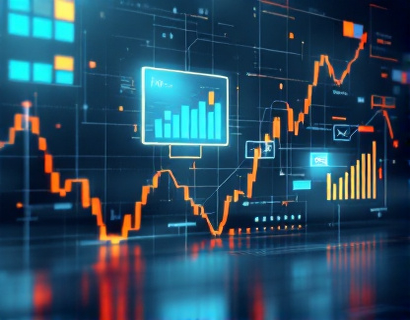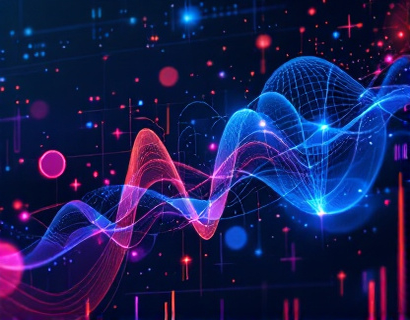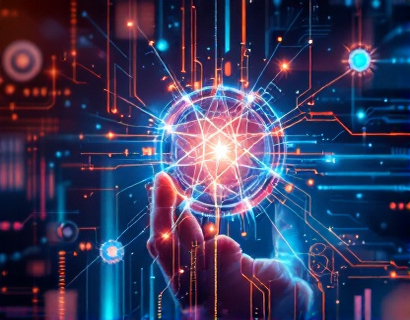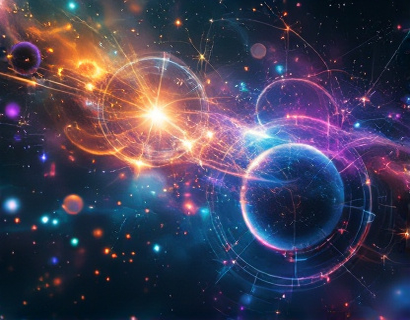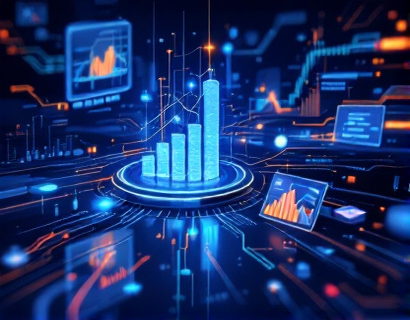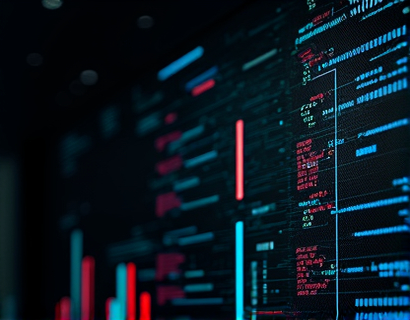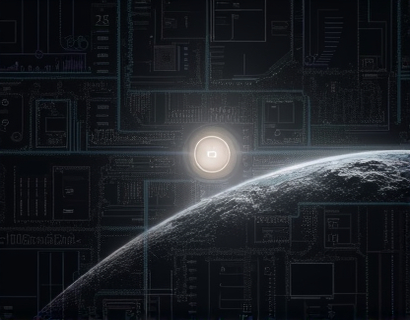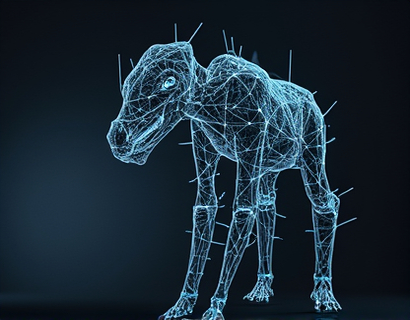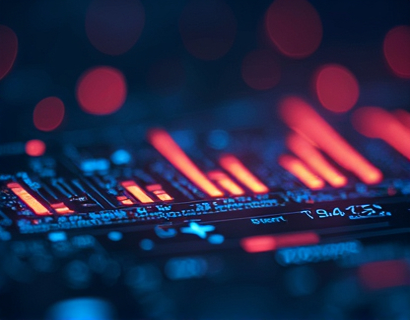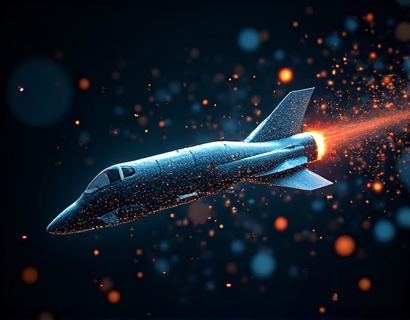Revolutionizing Digital Experiences: The Synergy of AI and Crypto
The intersection of artificial intelligence and cryptocurrency is giving rise to a new era of digital innovation, where blockchain technology and machine learning converge to create groundbreaking applications. This convergence, often referred to as BlockchainAI, is transforming the way we interact with digital services, offering enhanced security, efficiency, and personalization. As technology continues to evolve, understanding the potential of this synergy is crucial for tech enthusiasts and professionals alike.
Understanding Blockchain and AI
Blockchain technology, the backbone of cryptocurrencies, is a decentralized ledger that ensures transparency, security, and immutability in transactions. It operates on a network of nodes, each maintaining a copy of the ledger, which is updated through consensus mechanisms. On the other hand, artificial intelligence involves the simulation of human intelligence processes by machines, particularly computer systems. These processes include learning from experience, understanding natural language, and performing tasks that traditionally required human intervention.
The integration of AI with blockchain leverages the strengths of both technologies. AI can process and analyze vast amounts of data stored on the blockchain, identifying patterns and insights that can enhance decision-making and operational efficiency. Conversely, blockchain provides a secure and transparent environment for AI models to operate, ensuring data integrity and reducing the risk of fraud.
The Role of Machine Learning in Blockchain
Machine learning, a subset of AI, plays a pivotal role in enhancing blockchain applications. One of the primary uses of machine learning in blockchain is in the area of predictive analytics. By analyzing historical data, machine learning algorithms can forecast market trends, user behavior, and potential security threats. This predictive capability is invaluable for businesses looking to optimize their operations and stay ahead of the competition.
Another significant application is in smart contracts. Smart contracts are self-executing contracts with the terms of the agreement directly written into code. Machine learning can enhance smart contracts by enabling them to adapt to changing conditions and make more complex decisions. For instance, a machine learning model can analyze real-time data to adjust the terms of a smart contract dynamically, ensuring that all parties benefit from the most current information.
Enhanced Security Through AI and Blockchain
Security is a paramount concern in the digital world, and the combination of AI and blockchain offers robust solutions. Traditional security measures often rely on static rules and protocols, which can be vulnerable to sophisticated attacks. AI, with its ability to learn and adapt, can detect and respond to threats in real-time, providing a more dynamic and effective defense mechanism.
Blockchain's inherent security features, such as cryptographic hashing and decentralized consensus, are further strengthened by AI. Machine learning algorithms can monitor the blockchain network for unusual activities, such as anomalous transaction patterns or unauthorized access attempts. By identifying these anomalies, AI can trigger alerts and automated responses to mitigate potential security breaches.
Personalization and User Experience
The convergence of AI and blockchain is not only about security and efficiency; it also revolutionizes the user experience. Personalization is a key area where this synergy shines. AI can analyze user data stored on the blockchain to create highly personalized experiences. For example, in decentralized finance (DeFi) platforms, AI-driven algorithms can recommend investment strategies based on a user's risk tolerance, investment history, and market conditions.
Moreover, blockchain ensures that user data is owned and controlled by the individual, enhancing privacy and trust. Users can grant selective access to their data to AI systems, ensuring that their information is used responsibly and ethically. This level of control and transparency fosters a more trusting relationship between users and digital services.
Decentralized Applications (DApps)
Decentralized applications, or DApps, are a prime example of the innovative solutions emerging from the AI and blockchain convergence. DApps operate on a blockchain network and utilize smart contracts to function autonomously. AI enhances DApps by providing intelligent features that traditional apps cannot offer.
For instance, AI-powered chatbots integrated into DApps can provide 24/7 customer support, answering queries and guiding users through complex processes. These chatbots can learn from user interactions, improving their responses over time. Additionally, AI can optimize the performance of DApps by analyzing usage patterns and scaling resources dynamically, ensuring a seamless user experience even during peak times.
Supply Chain Optimization
The supply chain industry stands to benefit significantly from the integration of AI and blockchain. Traditional supply chains are often plagued by inefficiencies, lack of transparency, and fraud. Blockchain provides a transparent and immutable record of transactions, while AI can optimize various stages of the supply chain.
AI algorithms can predict demand, optimize inventory levels, and streamline logistics by analyzing real-time data from sensors and other sources. For example, machine learning models can forecast demand for products based on historical sales data, weather patterns, and economic indicators. This predictive capability helps businesses reduce waste and improve customer satisfaction by ensuring products are available when and where they are needed.
Moreover, blockchain ensures that every step of the supply chain is recorded and verifiable, reducing the risk of fraud and counterfeiting. AI can monitor these records in real-time, identifying any discrepancies or anomalies that require attention. This combination of technologies not only enhances efficiency but also builds trust among all stakeholders in the supply chain.
Healthcare Innovations
In the healthcare sector, the synergy of AI and blockchain is transforming patient care and data management. Blockchain provides a secure and decentralized way to store and share medical records, ensuring patient privacy and data integrity. AI, on the other hand, can analyze vast amounts of healthcare data to identify trends, predict disease outbreaks, and personalize treatment plans.
For instance, AI-driven diagnostic tools can analyze medical images and patient data to assist doctors in making more accurate diagnoses. These tools can be integrated into blockchain-based health records, ensuring that the data used for analysis is up-to-date and secure. Additionally, AI can optimize drug development processes by predicting the efficacy of new compounds and identifying potential side effects, accelerating the bring-to-market time for life-saving medications.
Challenges and Considerations
While the potential of AI and blockchain is immense, there are several challenges that need to be addressed. One of the primary concerns is scalability. Blockchain networks, particularly those using proof-of-work consensus mechanisms, can struggle with high transaction volumes. AI can help mitigate this by optimizing network performance and developing more efficient consensus algorithms.
Another challenge is the regulatory landscape. The intersection of AI and blockchain operates in a relatively uncharted territory, with varying regulations across different jurisdictions. Stakeholders must navigate these regulations carefully to ensure compliance and foster innovation.
Interoperability is also a significant issue. For AI and blockchain to reach their full potential, different systems and platforms need to work seamlessly together. Developing standards and protocols that enable interoperability is crucial for the widespread adoption of these technologies.
Future Prospects
The future of AI and blockchain is bright, with numerous opportunities for innovation and growth. As technology continues to advance, we can expect to see more sophisticated applications that combine the strengths of both fields. For instance, the development of quantum computing could revolutionize AI by providing unprecedented computational power, further enhancing the capabilities of blockchain networks.
Moreover, the rise of Web 3.0, a decentralized internet powered by blockchain, will create new opportunities for AI-driven services. In this ecosystem, users will have greater control over their data and digital identities, and AI can play a crucial role in managing and securing these assets.
In conclusion, the convergence of AI and blockchain is poised to redefine the digital landscape, offering secure, efficient, and personalized solutions. As tech enthusiasts and professionals, staying informed about these developments is essential for harnessing the full potential of this transformative synergy.




